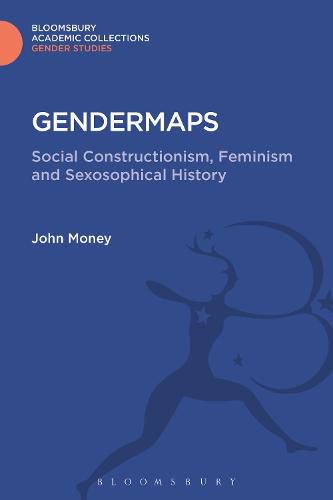Readings Newsletter
Become a Readings Member to make your shopping experience even easier.
Sign in or sign up for free!
You’re not far away from qualifying for FREE standard shipping within Australia
You’ve qualified for FREE standard shipping within Australia
The cart is loading…






To understand masculine and feminine social and political history in the second half of the 20th century, one must first understand the lexical history of the term gender, which did not become an attribute of human beings until 1955 when John Money introduced the concept of gender role to refer to the masculine or feminine presentation of individuals whose genital organs, by reason of birth defect, were anatomically neither completely male or completely female, but hermaphroditic.
In this book, Money explores the history of gender differentiation and its impact on contemporary, postmodern social constructionist explanations of male and female. He argues that the nature vs nurture dichotomy should be abandoned in favour of a paradigm of nature/critical period/nurture. The book further discusses how some gender differences are phylogenetically shared by all people and others are ontologically unique to an individual.
$9.00 standard shipping within Australia
FREE standard shipping within Australia for orders over $100.00
Express & International shipping calculated at checkout
To understand masculine and feminine social and political history in the second half of the 20th century, one must first understand the lexical history of the term gender, which did not become an attribute of human beings until 1955 when John Money introduced the concept of gender role to refer to the masculine or feminine presentation of individuals whose genital organs, by reason of birth defect, were anatomically neither completely male or completely female, but hermaphroditic.
In this book, Money explores the history of gender differentiation and its impact on contemporary, postmodern social constructionist explanations of male and female. He argues that the nature vs nurture dichotomy should be abandoned in favour of a paradigm of nature/critical period/nurture. The book further discusses how some gender differences are phylogenetically shared by all people and others are ontologically unique to an individual.